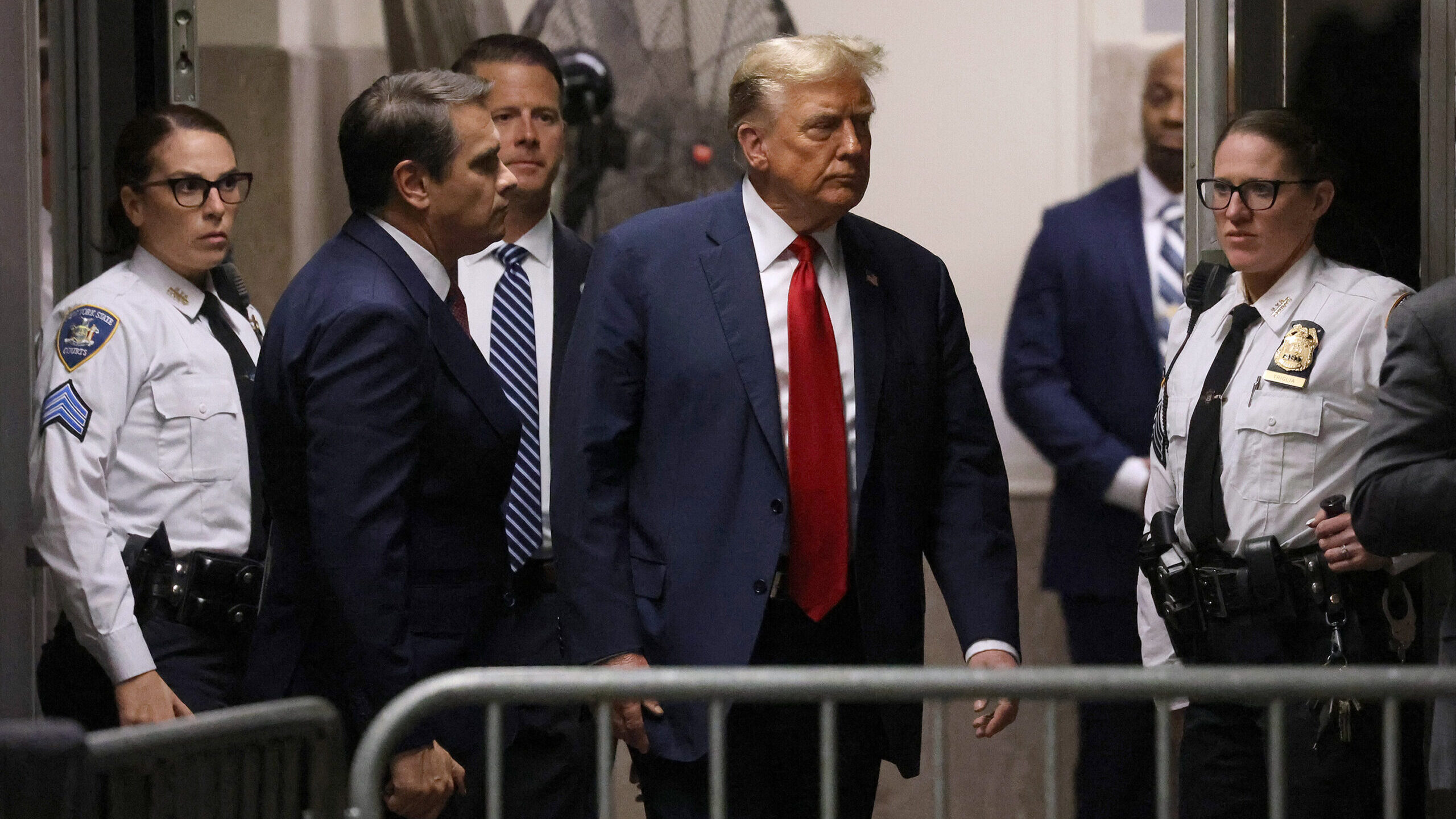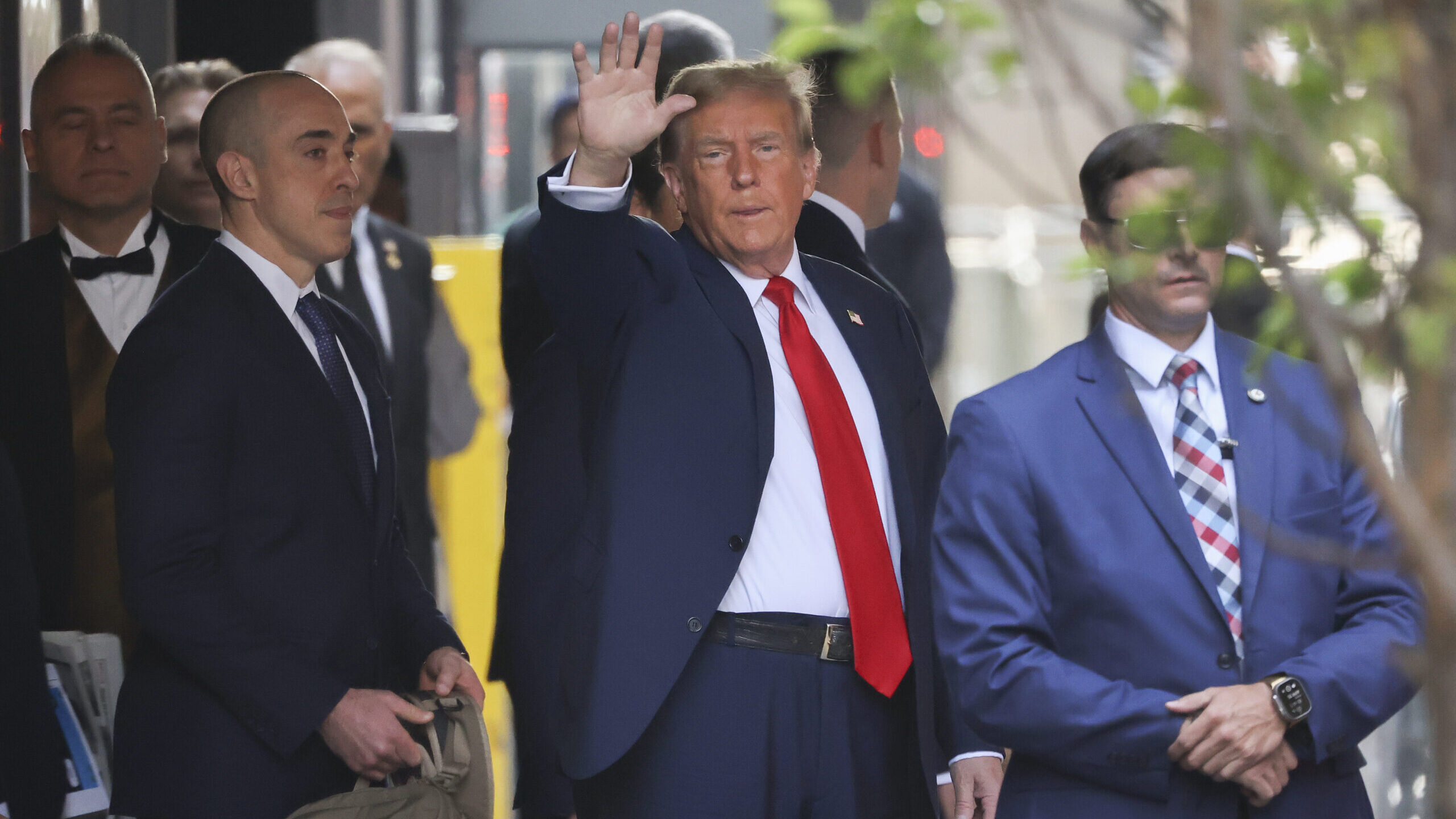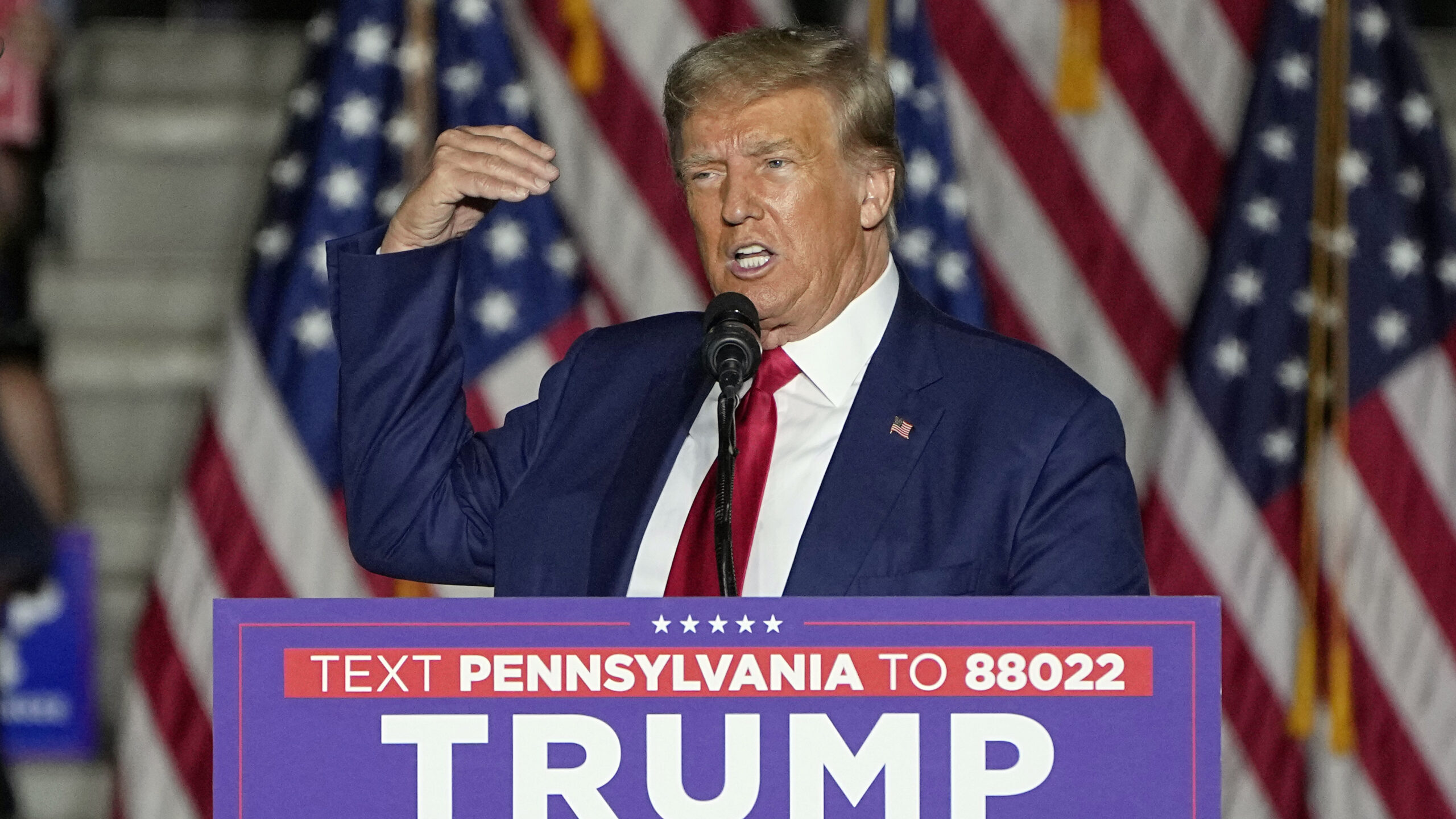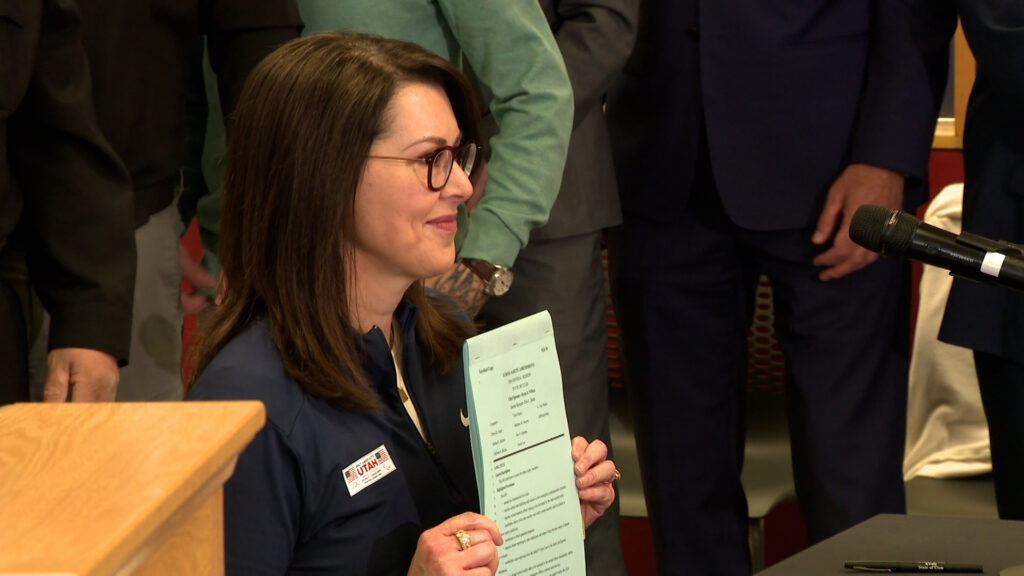Could Romney’s bill save Social Security and Medicare?
Feb 27, 2023, 4:30 PM | Updated: Mar 1, 2023, 3:04 pm
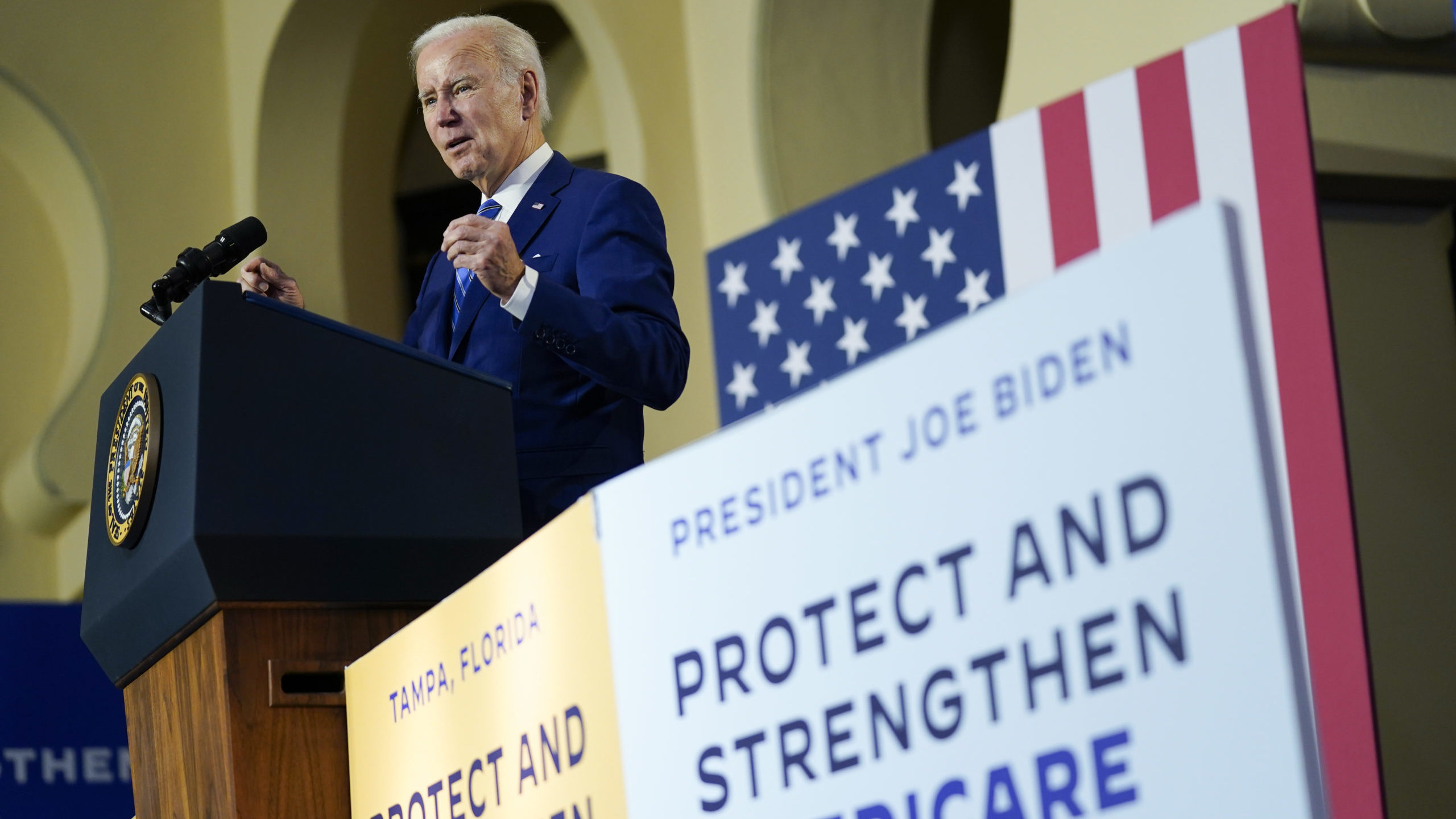
FILE - President Joe Biden speaks about his administration's plans to protect Social Security and Medicare and lower healthcare costs, Feb. 9, 2023, at the University of Tampa in Tampa, Fla. It seems like no one wants to cut Social Security or Medicare benefits, including Biden, who is already telling voters that his upcoming federal budget proposal will “defend and strengthen” the programs. (AP Photo/Patrick Semansky, File)
Credit: ASSOCIATED PRESS
(AP Photo/Patrick Semansky, File)
SALT LAKE CITY — Utah Sen. Mitt Romney has a proposal to keep Medicare and Social Security from becoming insolvent before they run out of funding. Which may likely be within a decade.
During President Joe Biden’s recent State of the Union address last month, he persuaded all members of Congress to agree that they would not cut Medicare and Social Security.
The recent 2022 Social Security Trustees report finds that in 2034, retirees will start receiving a reduced benefit if Congress doesn’t fix funding problems for the social program. In other words, Social Security will exist after 2034, but retirees will only receive 77% of their full benefit starting then, as reported in October by CNBC.
“We have to put Social Security and Medicare on the table in the long term,” says former Vice President Mike Pence. “We’re looking at a debt crisis in this country over the next 25 years that is driven by entitlements and no one in Washington, D.C., wants to talk about it.”
“We have to put Social Security and Medicare on the table in the long-term,” says former Vice President @Mike_Pence. “We’re looking at a debt crisis in this country over the next 25 years that is driven by entitlements and no one in Washington DC wants to talk about it.” pic.twitter.com/dL2bVhEgLU
— Squawk Box (@SquawkCNBC) February 22, 2023
Romina Boccia, of Cato at Liberty, writes a proposed commission would be centered on a bipartisan bill.
Social Security and Medicare have come back into the spotlight, following President Biden’s State of the Union. POTUS [President of the United States] ruled out any cuts to Social Security or Medicare and attacked Republican members for suggesting reforms. What POTUS failed to mention is that doing nothing on Social Security and Medicare will lead to automatic benefit cuts. Reforming these major old-age entitlement programs is not an option; it’s an urgent necessity.
Can a commission break through the legislative gridlock?
Social Security and Medicare: doing nothing brings cuts
“Just walk us through if Congress does nothing as it relates to Medicare and Social Security, what is the ultimate end of that?” Boyd asked.
“Yeah, so both programs are governed by trust funds,” Boccia said, “and the trust funds for both programs, Social Security and Medicare, are projected to be depleted within the next 10 years.
“For Medicare, that is going to happen much sooner, by 2028. And for Social Security, that trust fund looks to deplete by 2033. So doing nothing basically bakes in automatic benefit cuts for Medicare and Social Security.
“Lawmakers will have to do something, and the sooner they act to reform these programs, the more gradual the policy changes can be. The less drastic those policy reforms need to be, the more time the American people will have to adjust to new fiscal realities,” she said.
A bill aims to save Social Security and Medicare but . . .
“You focused in your piece about the bipartisan Trust Act and a possible path forward. Tell us a little bit about that,” Boyd said.
The Trust Act was introduced by Sens. Mitt Romney, R-Utah, and Joe Manchin, D- West Virginia.
Boccia said the act sets up a bipartisan commission. Which has 180 days to make the trust funds, Medicare and Social Security, sustainable. And also to ensure their funds never deplete.
” I think one of the most important things missing is that this commission would be made up entirely of members of Congress. I think that we would have a much greater likelihood of success if we had a commission made up of independent outside experts, regular Americans who could be informed by outside experts.
“. . . [T]he benefit of having outsiders is that they can look at it from a more independent perspective. They don’t have a horse in the race, and they will not be politically punished or rewarded. It also gives lawmakers, or legislators I should say, that political cover where they can promote a proposal and say, ‘Look, this was recommended by this group of experts, independent experts that we’ve pulled together. So they can avoid any potential political fallout, especially if some of those changes end up being tax increases and or benefit cuts and likely a combination of both,” Boccia said.
She added that most members of Congress are already eligible for both benefits
“You just have a conflict of interest right there,” Boccia added.
“What could possibly go wrong,” Boyd replied.
Inside Sources with Boyd Matheson brings a one-of-a-kind insider perspective to Utah and national politics.
Related reading


